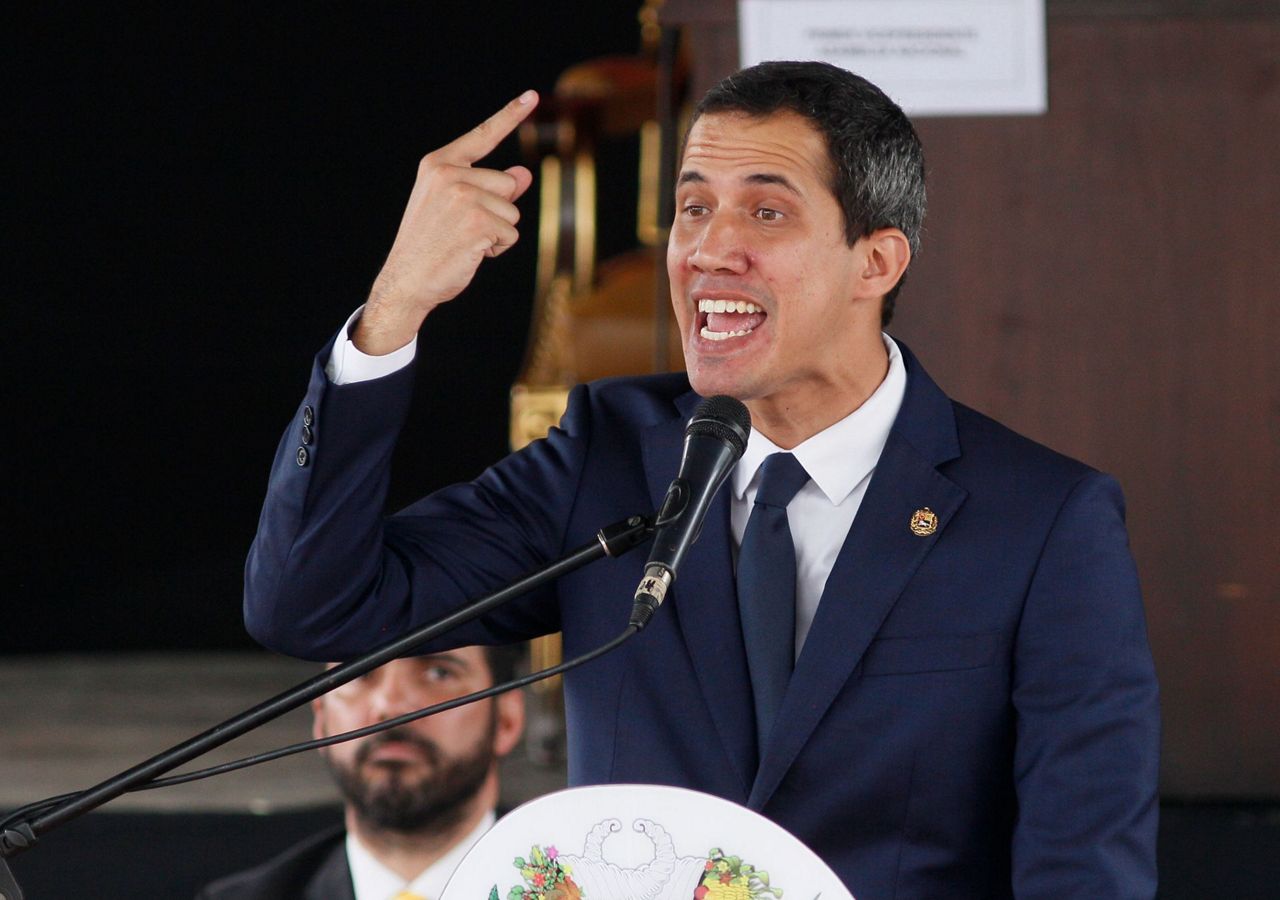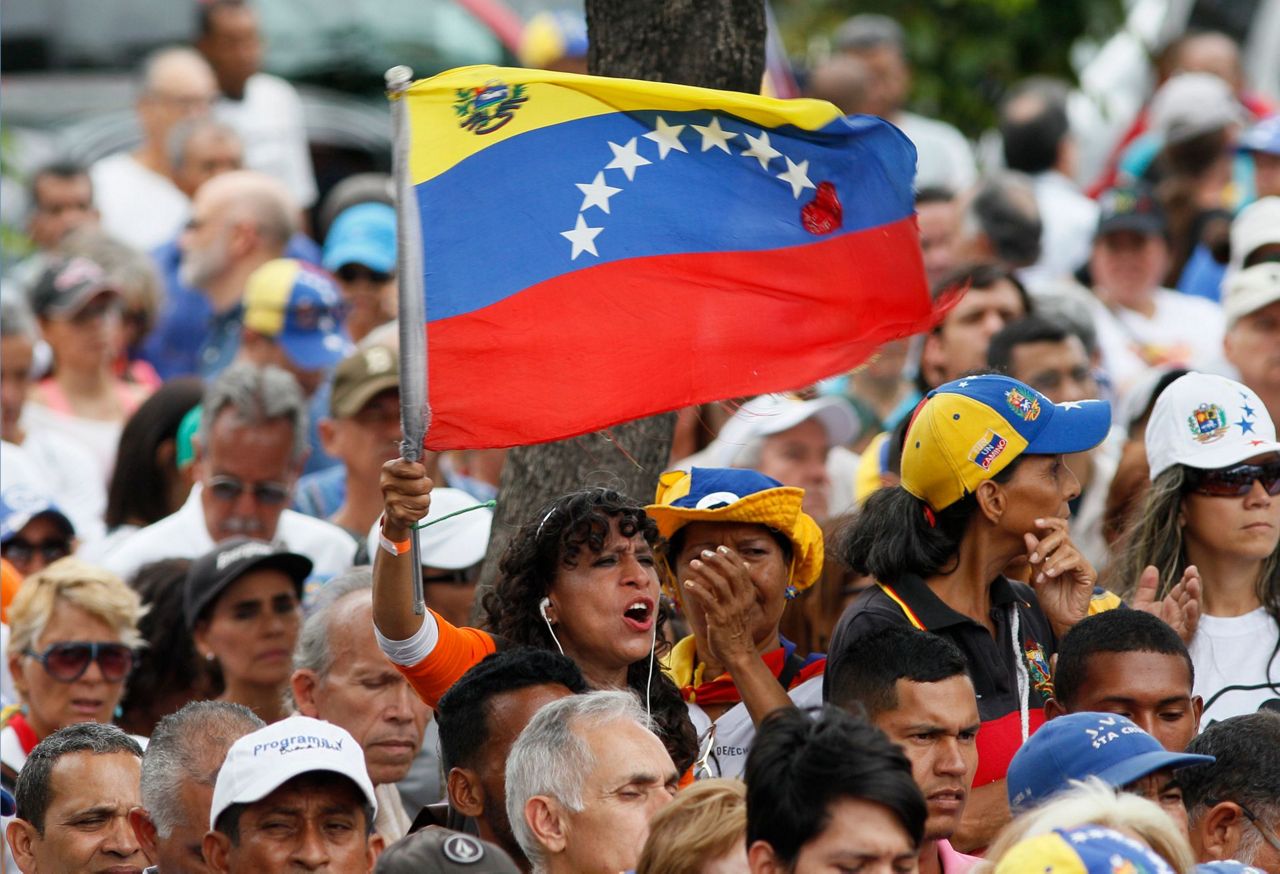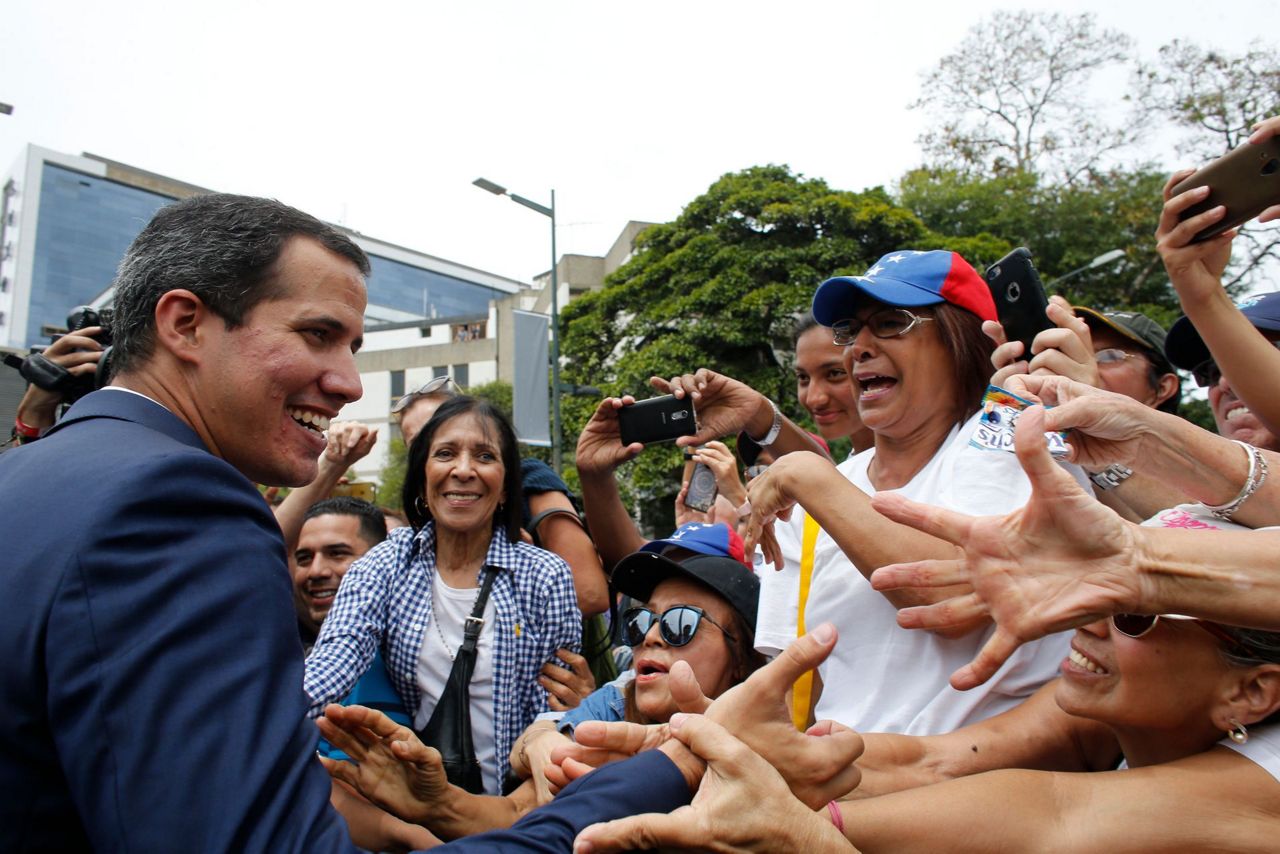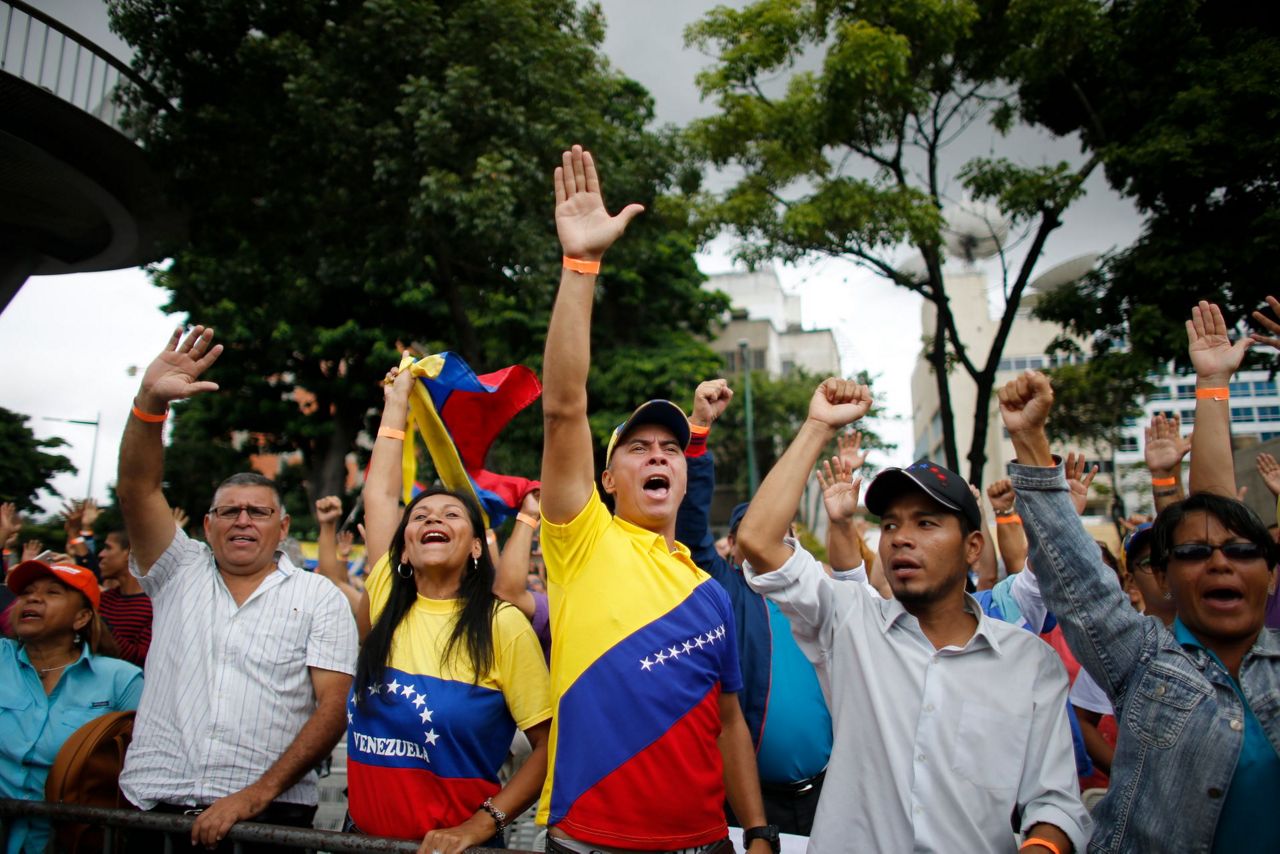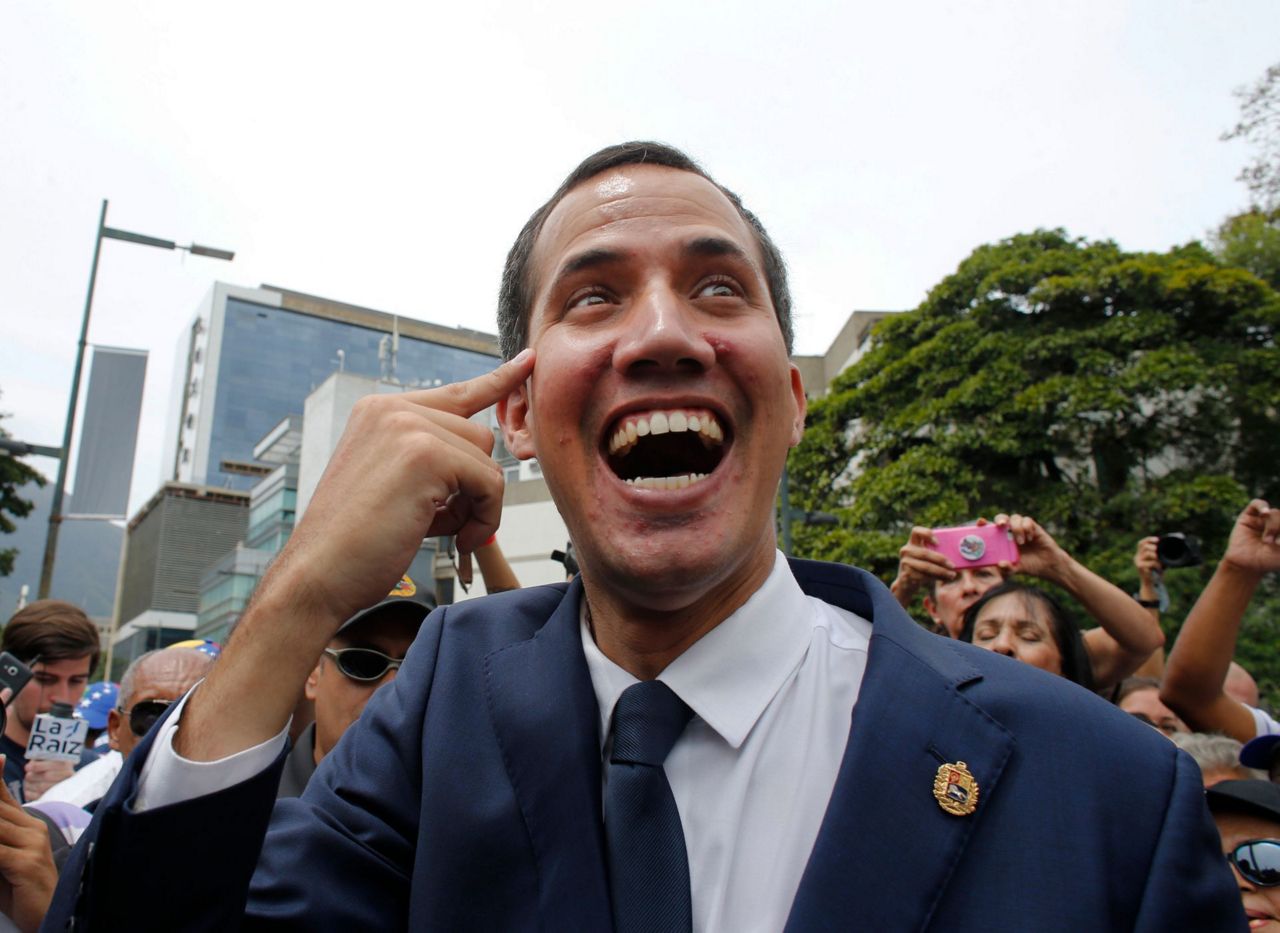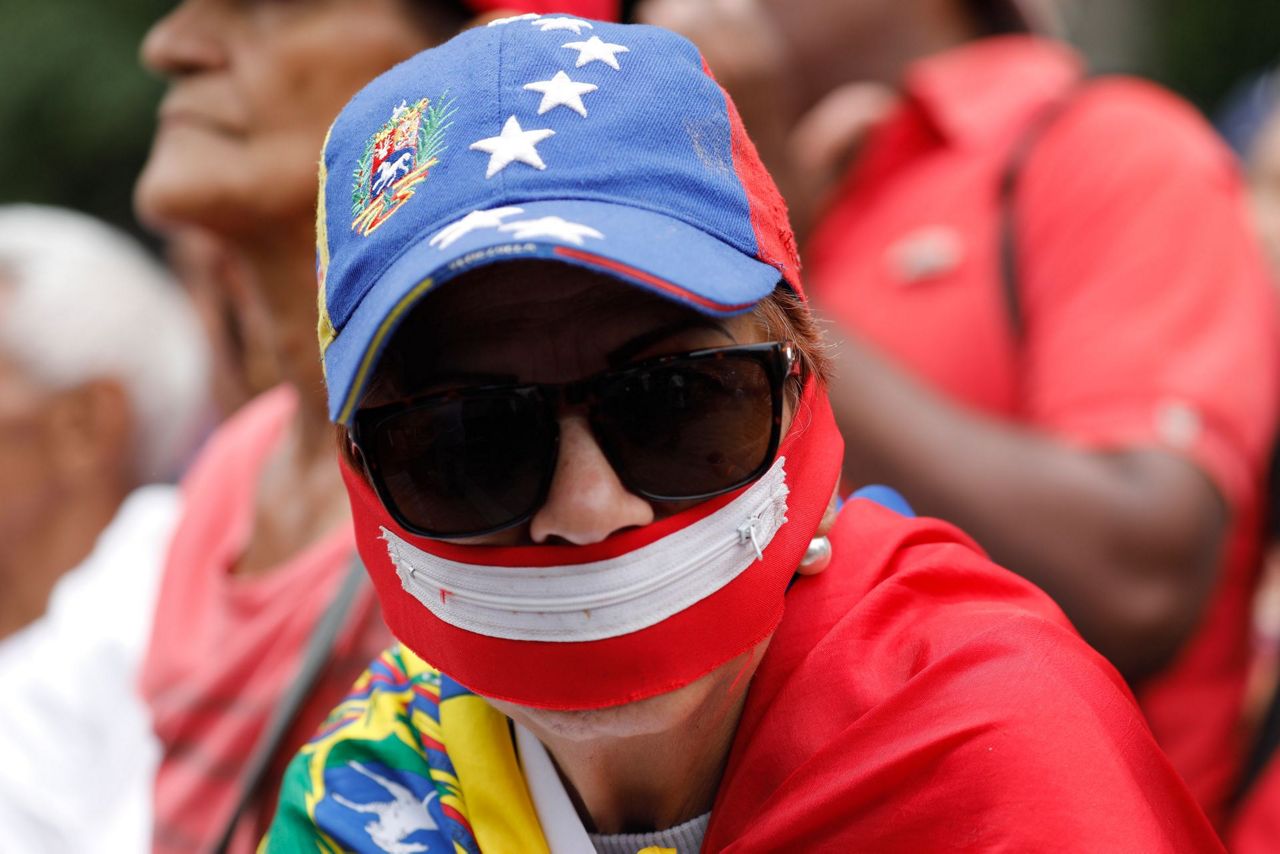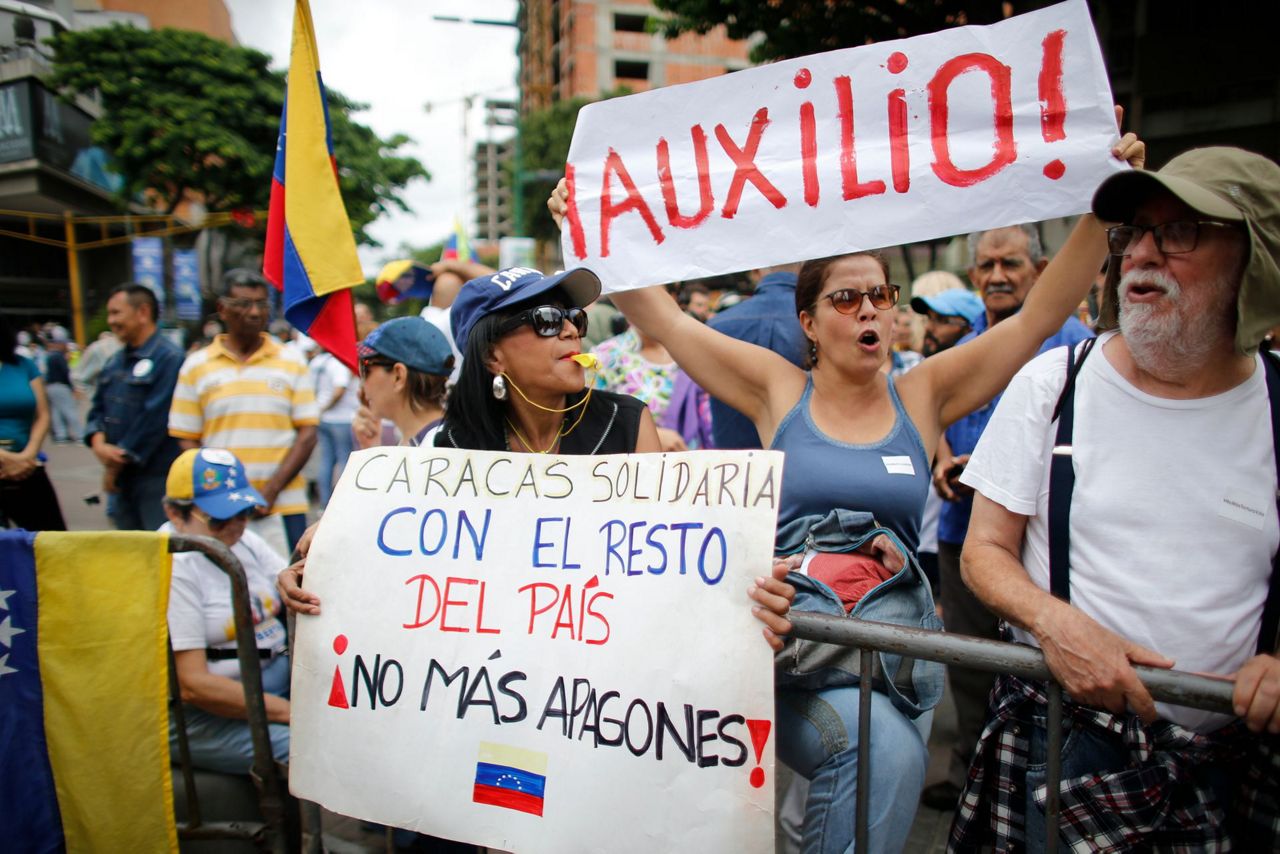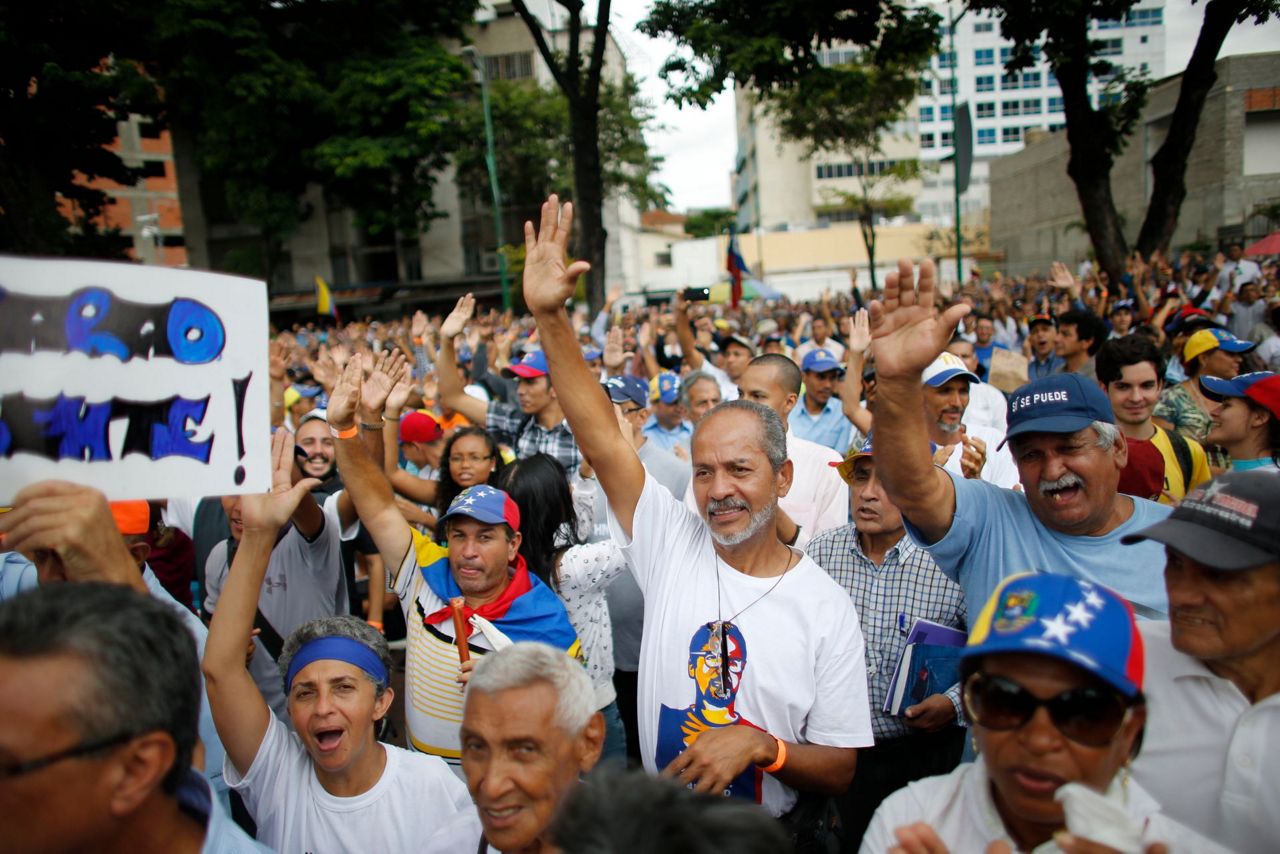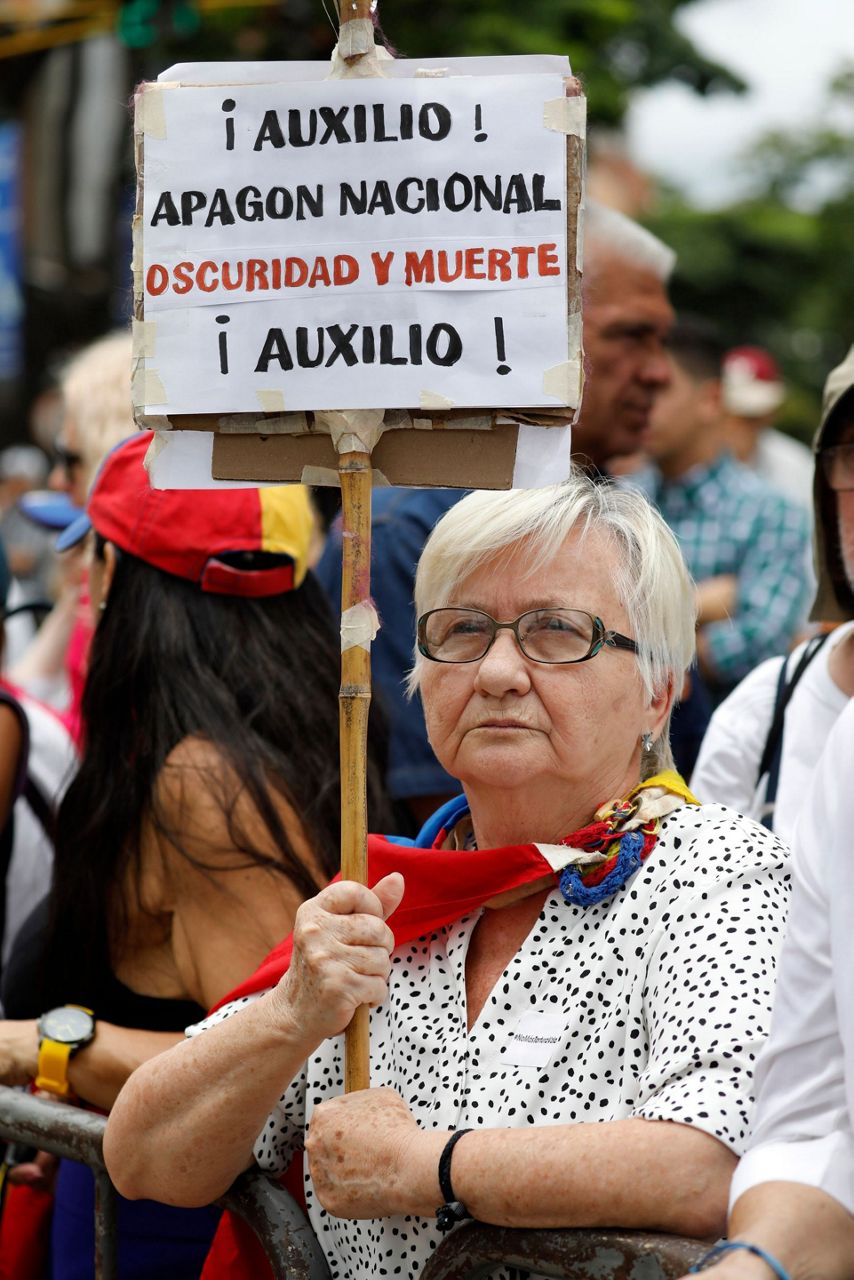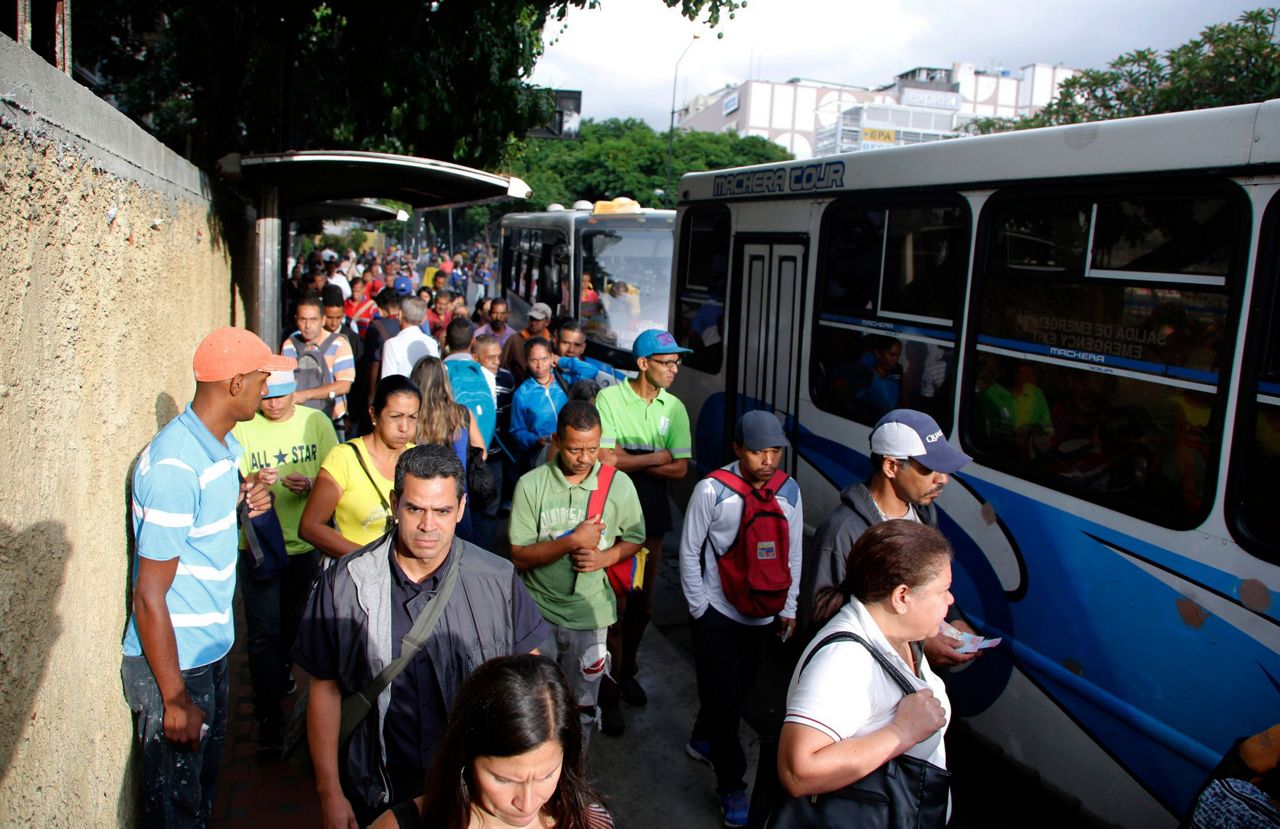CARACAS, Venezuela (AP) — Venezuela's opposition on Tuesday sought to harness anger over a massive blackout that deepened hardship nationwide, but turnout at a Caracas demonstration was relatively modest as many Venezuelans despair of an imminent solution to their plight.
Lights came back on in parts of the capital and other areas of Venezuela overnight following a nearly nine-hour outage that the government blamed on an "electromagnetic attack" against the power grid, without providing any evidence. Government opponents say years of mismanagement and corruption were to blame.
Electricity supply remained unstable in many regions. The blackout knocked out communications and the Caracas metro on Monday, forcing commuters to walk home or hustle for a spot on packed buses. The metro remained out of operation Tuesday.
The scenes in the capital were familiar, even though Caracas has been mostly spared the debilitating power cuts that persisted in other parts of the country after nationwide outages in March. The latest blackout didn't make much difference to people with scarce power in Maracaibo, Venezuela's second-largest city.
Maritza Arámbula, a Maracaibo resident, said she was tired of a government that makes "excuses" and an opposition continually seeking support from Venezuela's exhausted citizens.
"We need solutions, not promises," Arámbula said. "Not having light makes me sick."
In Caracas, the opposition-led congress held a session in a main square to try to keep pressure on the government of President Nicolás Maduro, who has defied U.S.-led efforts to oust him. Opposition leader Juan Guaidó appeared in front of bunting in the colors of the Venezuelan flag — red, blue and yellow — and said, as he often has in the past, that the government he calls a "dictatorship" is crumbling.
"We have to win," he said.
At the gathering, the congress approved Venezuela's return to the Inter-American Treaty of Reciprocal Assistance, a U.S.-led defense pact that could provide political cover for greater international involvement in the nation's crisis. However, Maduro's government was not expected to heed the opposition move.
In addition to congress deputies, hundreds of other people attended the event, a smaller crowd than the throngs that poured into the streets in January when Guaidó declared he was interim president and that Maduro's 2018 re-election was a sham. Some activists said the turnout was low because public transport wasn't available, though opposition demonstrations in Caracas have diminished in size over several months.
In January, expectations of change were high among many Venezuelans. But Maduro dug in, maintaining the support of Russia, Cuba and Venezuelan military leaders who ignored an opposition attempt to stoke a military rebellion on April 30. Now negotiations mediated by Norway are underway, worrying opposition activists who fear the government is playing for time.
Guaidó tweeted about the nationwide blackout, blaming it on the incompetence of a government that claims to espouse the socialist principles of Maduro's late predecessor, Hugo Chávez.
"For Venezuelans, it's not an option to get used to this tragedy," he said.
The Venezuelan government blamed sabotage, echoing allegations that the United States was behind nearly a week of blackouts in March that were allegedly aimed at forcing out Maduro. U.S. officials have scoffed at the suggestion.
It's unclear what Venezuela's government meant by its claim of an electromagnetic attack. There are weapons that can deliver an electromagnetic pulse that could fry circuitry in a power plant, similar to the way a lightning strike could damage computer equipment. But it's highly unlikely that those with the capability of using such sophisticated weapons would do so, some experts said, adding that a cyberattack would be more likely.
But the operating system of the Guri Dam, the anchor of Venezuela's power grid, is on a closed network with no internet connection, other experts said. Several speculated that a likely cause of blackouts in March was a fire along one of the electrical grid's powerful 765-kilovolt lines that connect the dam to much of Venezuela.
Venezuelan officials suspended school and work Tuesday for most Venezuelans because of the power failure, though Energy Minister Freddy Brito said government workers were restoring power across the country.
Netblocks, a group monitoring internet activity, said network data showed most of Venezuela had been knocked offline with national connectivity at just 6% after the outages on Monday.
Venezuela was once a wealthy oil nation, but an estimated 4 million residents have emigrated, tired of shortages of electricity and water, as well as food and medicine. U.S. sanctions have added to an economic crisis that has escalated for years, according to experts.
Still, the widespread frustration over yet another national blackout doesn't necessarily spell a breaking point for Maduro, said Eric Farnsworth, vice president of the Washington-based Council of the Americas and Americas Society think tank.
"It furthers the narrative that Maduro can't provide for his people, that basic services are a luxury that can't be taken for granted," Farnsworth said. "Is it enough to end the regime? I would say, no, it's not enough at this point."
Meanwhile, the Lima Group, which includes Canada and some Latin American countries, held a meeting in Buenos Aires, Argentina, to rally international support for Guaidó and condemnation of human rights violations under the Venezuelan government. Maduro backers say the Venezuelan opposition has fomented violence.
"The crisis is getting worse and requires an urgent solution through a transition with credible, transparent, free and fair elections, with the help of the international community," said Néstor Popolizio, the Peruvian foreign minister.
While Venezuela's future is unclear for many, an opposition activist wearing a Venezuelan flag around her shoulders like a cape said one thing is certain: The blackout in Caracas this week won't be the last.
"What we went through last night will happen again," said Adriana Caluogno, a computer programmer.
___
Associated Press journalists Sheyla Urdaneta in Maracaibo, Venezuela; Débora Rey in Buenos Aires, Argentina; and Cathy Bussewitz in New York contributed.
Copyright 2019 The Associated Press. All rights reserved. This material may not be published, broadcast, rewritten or redistributed.



